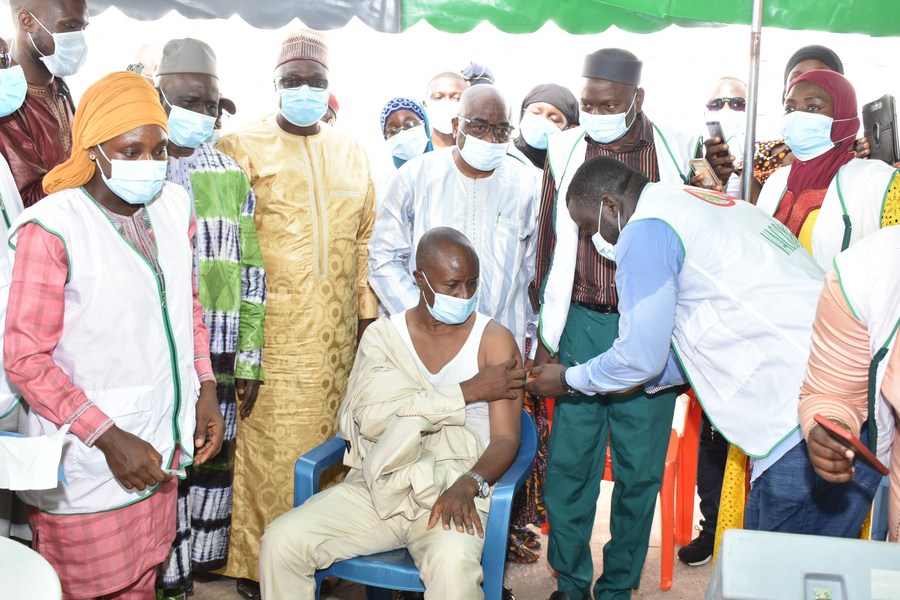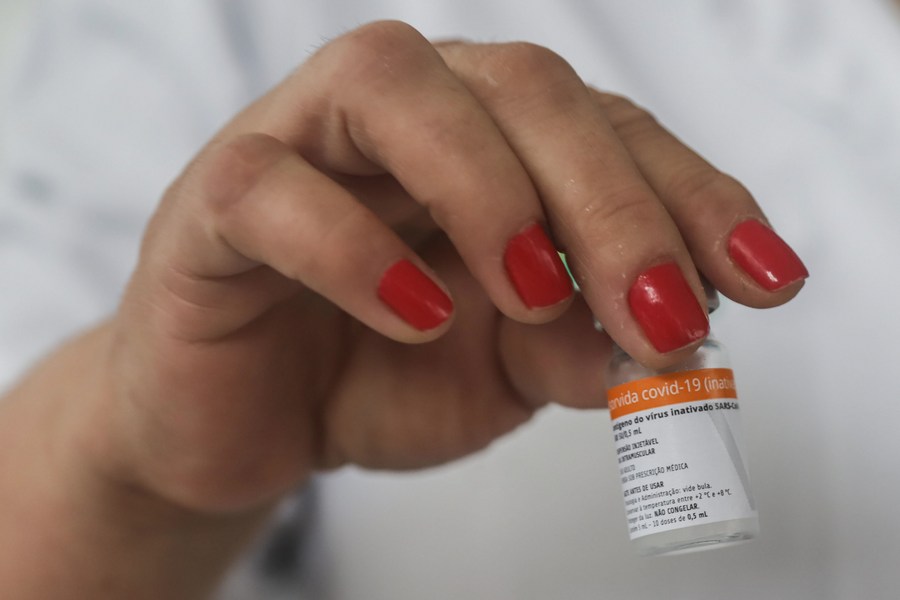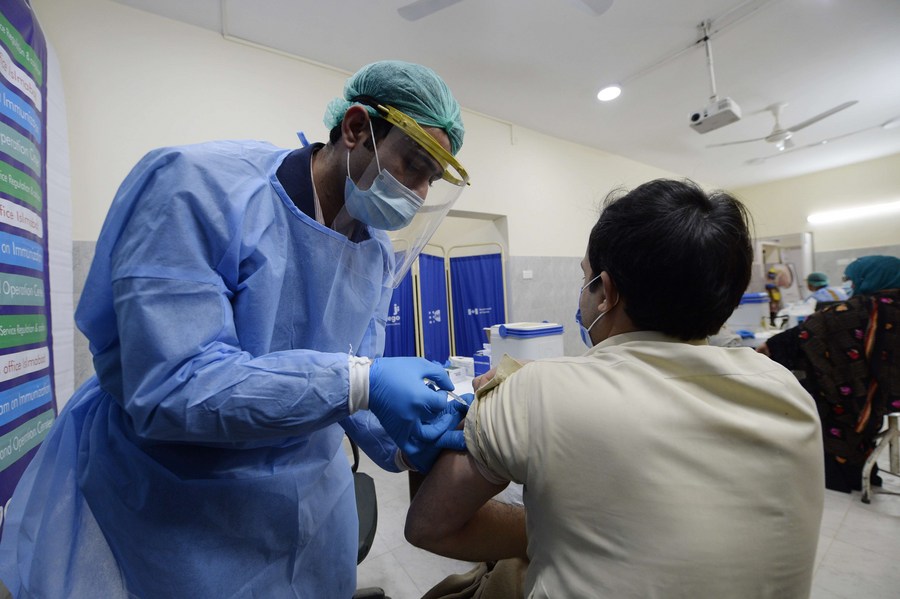China's vaccines help strengthen 'weakest link' in world's fight against COVID-19
China's pledge and action to make its COVID-19 vaccine a global public good will help strengthen "the weakest link" in the world's battle against the pandemic, a renowned U.S. expert has said.
China's pledge and action to make its COVID-19 vaccine a global public good will help strengthen "the weakest link" in the world's battle against the pandemic, a renowned U.S. expert has said.

A man receives a shot of China-aided vaccine in Conakry, capital of Guinea, March 5, 2021. (Xinhua)
"I think China's doing about it the right way," Sourabh Gupta, a senior fellow at the Washington-based Institute for China-America Studies, told Xinhua recently, when talking about China's dispatching vaccines to countries in dire need.
"If the weakest link is in some faraway country wherever the COVID-19 is still ... prevalent, we will all have ... mutations of COVID-19 which will defeat the vaccines already exist," he said.
As vaccine researchers are working around the clock to offer stronger and broader protection against COVID-19, preliminary data from a study in Brazil indicates that a type of vaccine developed by China's Sinovac Biotech is effective against the P1 variant first detected in Brazil, Sao Paulo State Governor Joao Doria confirmed to Reuters on Wednesday.

A health worker holds a dose of CoronaVac, a vaccine against COVID-19 from China, on the first day of inoculation for people over 90 years old, in Sao Paulo, Brazil, on Feb. 5, 2021. (Photo by Rahel Patrasso/Xinhua)
Gupta expressed the hope that China will continue proceeding forward with distributing vaccines "as widely as possible in the developing world" under the World Health Organization's COVAX framework.
As a steadfast advocate for equitable vaccine distribution, China has joined COVAX, under which China has undertaken to provide an initial 10 million doses of domestic vaccine for emergency use in developing countries.
China has also donated vaccines to peacekeepers from various countries and is ready to work with the International Olympic Committee to provide vaccines to Olympians, Chinese State Councilor and Foreign Minister Wang Yi told a press conference on Sunday.
So far, China has donated or is donating COVID-19 vaccines to 69 developing countries in urgent need, and is exporting vaccines to 43 countries, Wang said, noting that China has worked in real earnest to improve vaccine accessibility and affordability in developing countries.
"In the long arc of things, the truth will be understood by people who ultimately get the jab," said Gupta.
Gupta also slammed the so called China's "vaccine diplomacy" invented by some Western politicians and media outlets.

A medical worker receives a dose of COVID-19 vaccine at a hospital on the outskirts of Islamabad, capital of Pakistan, Feb. 4, 2021. (Xinhua/Ahmad Kamal)
"I think that it's been an unfortunate (thing that) the way even good deeds ... have been framed in an adversarial way," he said.
Many rich countries, Gupta said, claimed to practice multilateralism in vaccine distribution, but they are "very unilateral," and stuck to their own national priorities, keeping "excessive stockpiles at their ends, without thinking of other poorer people."
"It really doesn't matter if a Western media house is trying to create an alternative narrative about that, it is about people on the ground and their health matters," he said.
The majority of developing countries have been unable to administer a single dose of a COVID-19 vaccine, while rich nations have vaccinated their citizens at a rate of one person per second over the last month, said the People's Vaccine Alliance, a global coalition of organizations and activists, on Tuesday.
"Vaccines are a powerful weapon against the virus and bring hope for saving lives. They should serve the entire world and benefit all humanity," Wang told reporters on Sunday.
"We hope that all capable countries will do what they can to provide vaccines to countries in need, especially developing countries, so that people all over the world will have access to affordable vaccines, vaccines that truly benefit people," he said.

